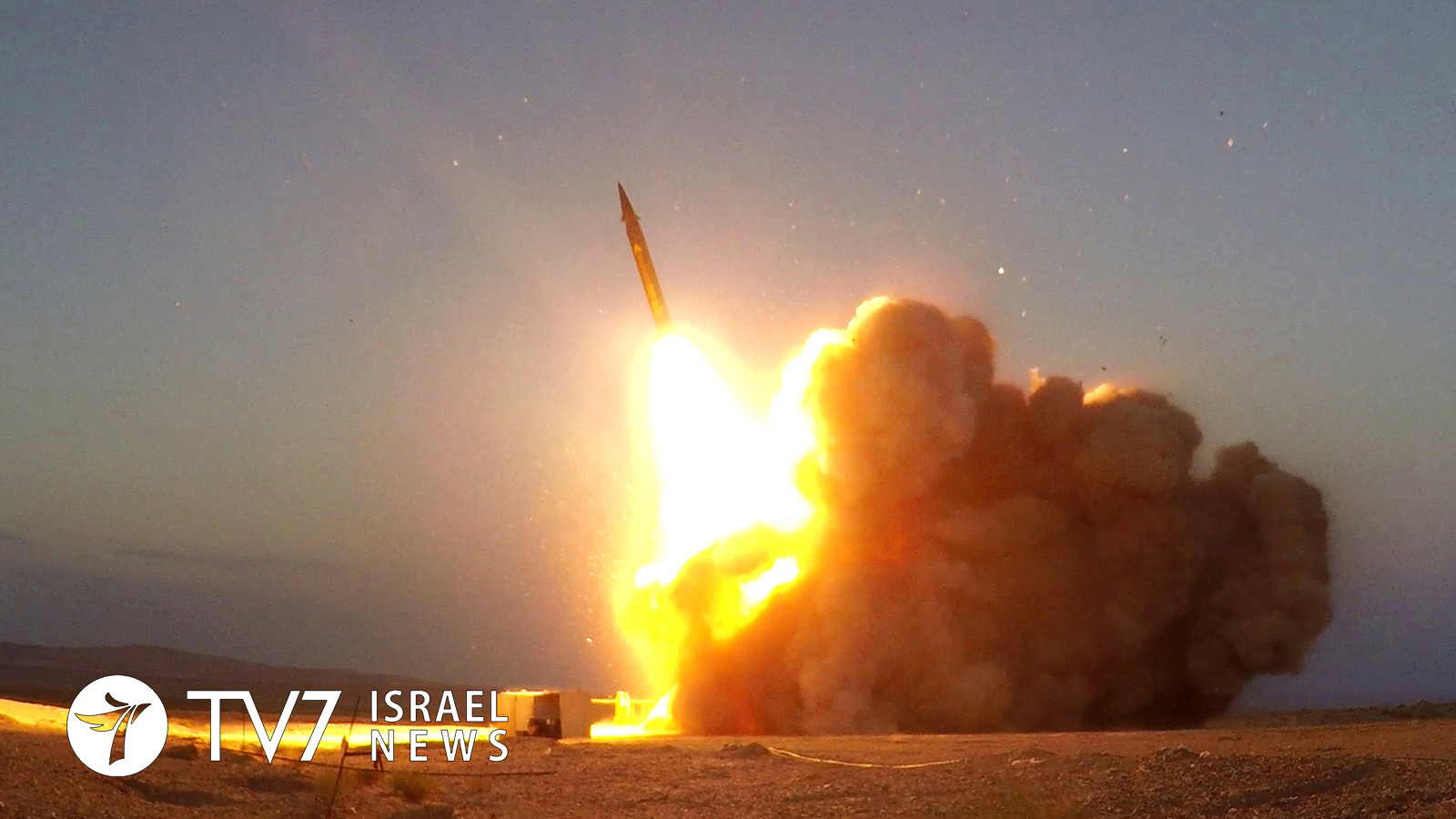Iran’s Islamic Revolutionary Guards Corps (IRGC) unveiled new locally designed and manufactured ballistic and cruise missile systems this morning.
The weaponry was named in honor of the late IRGC Quds Force Commander Qassem Soleimani and Kataib Hezbollah Commander Abu Mahdi al-Muhandis, both of whom were killed in the same airstrike by the United States military in Iraq in January upon arrival from Syria.
In other developments, the Tehran’s Foreign Ministry announced the seizure of an Emirati ship and detention of its crew earlier this week based on claims the vessel had illegally entered Iranian waters.
The incident occurred shortly after the Islamic Republic accused the UAE of killing two Iranian “fishermen,” when the Emirates’ Coast Guard opened fire on several Iranian boats that had entered the Arab Emirate’s territorial waters.
While the Iranian Foreign Ministry claimed that it had reprimanded the United Arab Emirates charge d’affairs to Tehran over the reported incident, Abu Dhabi officials did not immediately respond to TV7’s request for comment.
Meanwhile, Iran’s top diplomat rebuffed Washington’s recent moves to enact so-called snap-back sanctions mechanism for crippling economic sanctions against Tehran after the U.S. draft resolution to extend an arms embargo was defeated at the United Nations Security Council (UNSC).
“Yes, we all know that the next step for the United States is a snap-back, which it has no legal right to. Well, if a snap-back was so easy for the United States, why didn’t it do it two years ago? Why did the U.S. not do it yesterday? Why didn’t they do it instead of enduring this scandal? Because it is also a completely illegal act, at least one resolution could be voted on,” said Foreign Minister Mohammad Javad Zarif.
The Trump administration remains adamant that the Islamic Republic would further foment instability across the Middle East and Southeast Asia if permitted to legally engage in arms trading. U.S. Secretary of State Mike Pompeo vowed to trigger the snap-back mechanism outlined in UNSC Resolution 2231, with which he expects the international community to comply.
“We have every expectation that they’ll be enforced just like every other UN Security Council resolution that is in place. You have to remember, 2231 isn’t a U.S. document. It is a UN Security Council document. It has a set of provisions, it has a set of rights and obligations, and we will be in full compliance with that, and we have every expectation that every country in the world will live up to its obligations, including every member of the P5 and every member of the UN that will take seriously the international commitments to which they have signed up for,” he said.
Iraqi Foreign Minister Fuad Hussein, who is visiting Washington, appeared alongside Pompeo. When asked whether Baghdad would support Washington’s efforts against Tehran, he replied, “With respect to the Iraqi policy, we see that the United States of America is an ally, and a strong ally for Iraq. And we will continue to protect this alliance and to deepen it and expand it.”
“Iran is a neighboring country to Iraq, and as a result, there are ties pertaining to geography, history, culture, economy, and the Iraqi policy, or Iraq’s foreign policy, is based out of Iraq’s national interest,” pointed out Baghdad’s top diplomat, going on to stress that his nation wants to have “good relations with our neighbors – provided that nobody interferes in Iraq’s affairs and the Iraqi decision will be made by the Iraqis – and we want to protect our alliances and relations with others, including the United States of America.”
